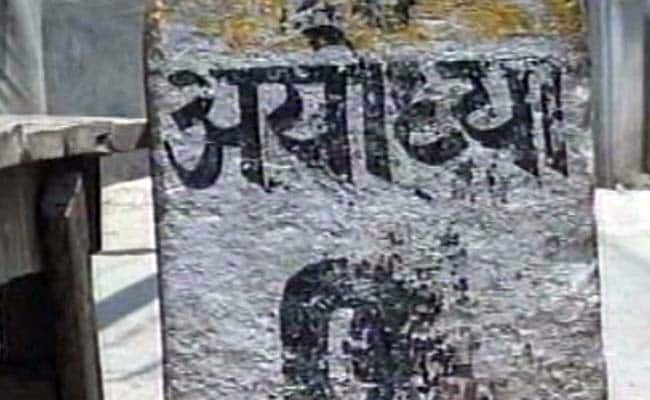
Veteran BJP leader LK Advani and other senior leaders of the party will be tried for criminal conspiracy to demolish the 16th-century Babri Masjid in December 1992, the Supreme Court ruled today. LK Advani, 89, and top BJP leaders including Murli Manohar Joshi and Uma Bharti are charged with making inflammatory speeches that led to demolition of the mosque. Though the issue has been pending for 25 years, it has been nearly seven decades since the first case over the Babri Masjid-Ram Janambhoomi land was filed.
Here is your 10-point-guide to the Ayodhya Ram temple-Babri masjid issue over the decades:
In 1949, the property dispute went to court after idols of Lord Ram were inside the Babri mosque. Hindu groups had claimed the mosque was built after demolishing a temple. In 1959, following communal clashes, the British administration marked separate areas of worship for Hindus and Muslims.
In 1984, Hindu groups formed a committee to spearhead the construction of a Ram temple. Three years later, a district court ordered the gates of the mosque to be opened after almost five decades and allowed Hindus to worship inside the "disputed structure." A Babri Mosque Action Committee was formed by Muslim groups. In 1989, foundations of a temple were laid on land adjacent to the "disputed structure".
In 1990, the then BJP president LK Advani took out a cross-country rath yatra to garner support to build a Ram temple at the site. VHP volunteers partially damaged the Babri mosque.
On December 6, 1992, the mosque was demolished by karsevaks. Communal riots across India followed. Ten days after the demolition, the Liberhan Commission was set to probe the incident.
In September 2003, a court ruled that seven Hindu leaders, including some prominent BJP leaders, should stand trial for inciting the destruction of the Babri Mosque. But no charges were brought against Mr Advani who was then the Deputy Prime Minister. But a year later, an Uttar Pradesh court ruled that the order which exonerated him should be reviewed.
The Liberhan Commission submitted its report on June 2009 - naming LK Advani, Atal Bihari Vajpayee and other BJP leaders -- almost 17 years after it began its inquiry.
In April 2002, a 3-judge Lucknow bench of the Allahabad High Court began hearings on determining who owned the site. In September 2010, the Allahabad High Court pronounced the verdict. The verdict said the site of Babri mosque is to be divided into three parts, each going to Nirmohi Akhara, Ram Lalla and the Sunni Central Waqf Board of Uttar Pradesh.. Within months, Hindu groups and Muslim groups moved Supreme Court challenging the High Court verdict.
In May 2010, the CBI challenged the Allahabad High Court order upholding the May 2001 Rae Bareli court decision to drop conspiracy charges against the BJP veterans and discharge them from the case.
In May 2011, the Supreme Court stayed the Allahabad High Court order. Not long before, the top court had said the Allahabad High Court verdict was strange and surprising.
Last month, the Supreme Court suggested that the issue was best resolved through negotiations and not a judicial verdict. The top court asked LK Advani, Murli Manohar Joshi and other accused to give written submissions.

